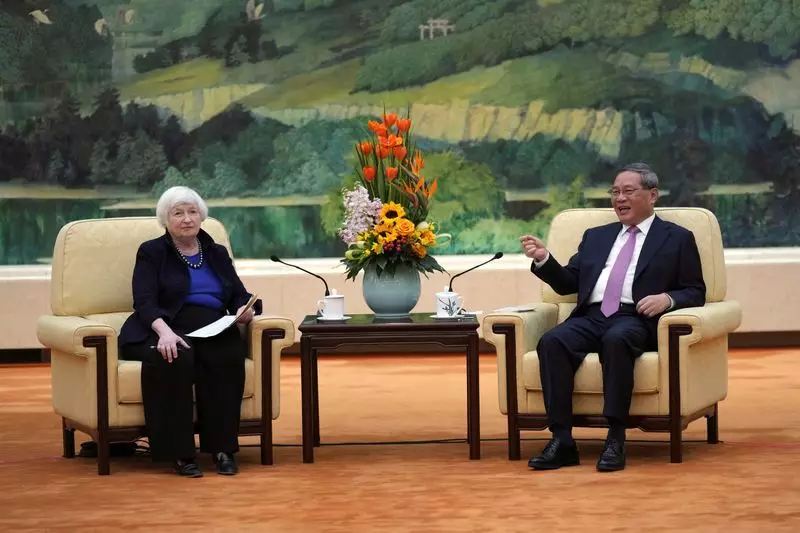The recent meeting between U.S. Treasury Secretary, Janet Yellen, and Chinese Premier, Li Qiang, highlighted the importance of open and honest communication in maintaining a stable relationship between the two economic superpowers. Despite differences in opinion and competing economic interests, both parties acknowledged the need to work together as partners rather than adversaries. This article will delve into the key issues discussed during the meeting and analyze the challenges ahead in managing the complex U.S.-China relationship.
Yellen emphasized the significance of having difficult conversations as a means of fostering stability in the bilateral relationship. She stressed the need for both countries to address differences openly and directly, rather than ignoring or avoiding them. This approach, according to Yellen, is essential for making progress and building trust between the two nations. The acknowledgment of these challenges sets a positive tone for future cooperation between the U.S. and China.
One of the key topics of discussion during Yellen’s visit was China’s excess production in industries such as electric vehicles (EVs), solar panels, and other clean energy products. Yellen raised concerns about the impact of China’s overcapacity on producers in the U.S. and other countries. She highlighted the need for a level playing field to protect American workers and businesses, signaling her intention to advocate for fair trade practices in future dialogues with Chinese officials.
In the southern export hub of Guangzhou, Yellen and Vice Premier He Lifeng agreed to launch a dialogue focused on achieving “balanced growth” between the two economies. As China’s battery manufacturing capacity continues to outpace demand, concerns have been raised about the sustainability of its EV industry. While China’s support for innovation has propelled the country to become a global leader in clean energy technology, the issue of excess manufacturing capacity remains a challenge that both countries must address together.
Despite ongoing tensions between the U.S. and China on various issues such as Taiwan, COVID-19 origins, and trade disputes, both countries have expressed a commitment to managing their relationship responsibly. Recent high-level talks, including a call between President Biden and President Xi Jinping, have signaled a willingness to cooperate on global challenges and prevent further escalation of conflicts. Additionally, military officials from both countries have engaged in discussions focused on operational safety and professionalism, demonstrating a shared commitment to managing potential conflicts.
As the world’s two largest economies, the U.S. and China face numerous challenges in managing their complex relationship. The issue of excess production capacity in China’s key industries poses a threat to fair competition and market sustainability. Balancing economic growth while addressing trade imbalances and intellectual property concerns will require ongoing dialogue and cooperation. Both countries must navigate these challenges carefully to ensure a mutually beneficial relationship that promotes global economic stability and innovation.
The meeting between Janet Yellen and Chinese Premier Li Qiang serves as a reminder of the importance of open communication and mutual respect in managing the U.S.-China economic relationship. By addressing differences directly and working towards shared goals, both countries can build a more stable and cooperative partnership that benefits their economies and the global community as a whole.

